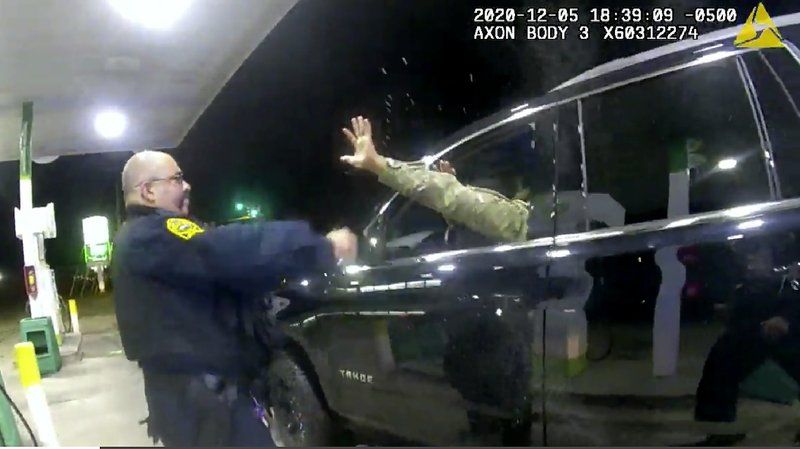
Source: Screenshot / Windsor Police Department
An all too familiar phrase, routine traffic stops are often anything but for Black drivers. A new study from the American Psychological Association found that police are more hostile when speaking to Black men than their white counterparts.
Researchers examined the tone and intonation in a speech during traffic stops using body camera footage and audio clips. Building on prior studies showing police having a more respectful tone toward white people in various institutional settings.
Researchers described using footage from an unnamed medium-sized U.S. city to put together a composite sketch of interactions during traffic stops. NBC News reported another study focusing on Oakland showed Black residents were 61 percent more likely to be told to put their hands on the wheel during a traffic stop than white residents.
For Black drivers, this isn’t news, but documenting the pattern of behavior toward Black drivers could help address policies going further. But police interactions during traffic stops continue to be a source of concern, with some leading to fatal outcomes.
Two studies from last year highlighted a person’s likelihood of being stopped based on race. Data reviewed in Los Angeles last year showed Black people were significantly more likely to be stopped than their white counterparts.
A local ABC affiliate found that over 10 years, 25 percent of people stopped were Black. Black people make up about 10 percent of the city’s population. The outlet further found that Black men and women were more likely to interact with police during a stop beyond a simple warning.
Another report published last spring in Nature reviewed traffic stops across the country. Findings revealed that Black drivers were less likely to be stopped after sunset, suggesting that the increase in stops during the daytime was an indication of racial bias. The report also found states that decriminalizing marijuana also reduced search rates during a stop.
Such data reinforces what many Black drivers and their passengers already know about “driving while Black.” With increasing examples of policing interactions gone wrong, some reformers look to find ways to improve policing through training and sensitivity courses.
But addressing racial disparities in police interactions, including changing police attitudes and tactics toward Black people, requires more than additional training. Minimizing disparities could require local and state governments to adopt new policies and internal guidance on interactions during traffic stops.
SEE ALSO:
Civil Rights Leaders Applaud As House Passes The George Floyd Justice In Policing Act
The ‘Mecca’ Is A Mirage: Police Brutality Shows Atlanta Is A Tale Of Two Cities For Black People
Cops Are Getting Paid More Despite Calls To Defund The Police
[ione_media_gallery id=”3440564″ overlay=”true”]
